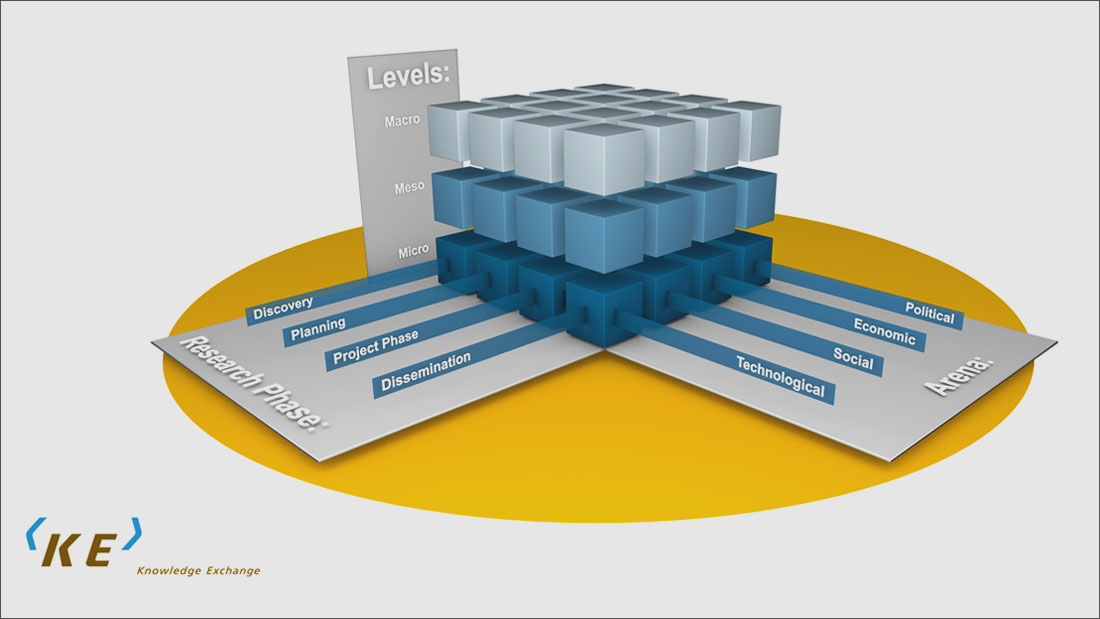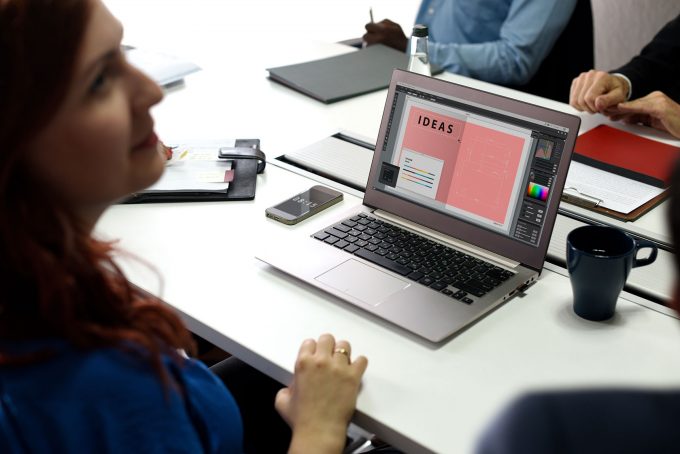
Knowledge Exchange Report: New Approach to Better Understand the Current Change Towards Open Scholarship
The latest report of the Knowledge Exchange describes the present situation of open scholarship and highlights the main motivations, challenges and obstacles of the transition to Open Scholarship. Dr Matthias Katerbow (Deutsche Forschungsgemeinschaft, DFG, German Research Foundation) gives a brief overview of the reports’ contents and especially two new important areas of work: the Economy of Open Scholarship and Output and Evaluation from the Researcher's Perspective.
Enabling Open Scholarship is at the heart of the Knowledge Exchange’s mission statement. A significant part of Knowledge Exchange’s activity will aim directly at improving conditions for doing research in an open and digital way. Our latest report on Open Scholarship (DOI 10.5281/zenodo.826643) offers a framework for the work of Knowledge Exchange as well as insights into two new topics we have started to work on: First, the Economy of Open Scholarship, and second, Output and Evaluation from the Researcher’s Perspective.
Skip to PDF contentIn order to approach the complex open scholarship work, Knowledge Exchange has established the Knowledge Exchange Open Scholarship Advisory Group (KEOSAG), which includes open scholarship experts from both inside and outside of the KE partner organisations. The current report is based on contributions from the Knowledge Exchange Open Scholarship Advisory Group and is edited by Cameron Neylon.
The report describes the present situation of Open Scholarship and highlights the main motivations, challenges and obstacles of the transition to Open Scholarship. You will also find the idea of a Knowledge Exchange Open Scholarship Framework, which helps to identify the Arenas (political, economic, social, technology) and the phases of the research life cycle where work needs to be done to better navigate towards Open Scholarship.

The report also describes two new important areas of work, first, the Economy of Open Scholarship, and second, Output and Evaluation from the Researcher’s Perspective. Both new topics are roughly sketched and more important, the report raises a bunch of questions to better understand the economy of Open Scholarship as well as questions to become able to make, mark and rank all types of output in an open scholarship environment.
Economy of Open Scholarship
The purpose of this strand of work will be to improve our economic understanding of the processes, supporting services, and organisational forms that underpin the full research cycle. In doing this, our goal is to understand how best to use the full range of economic and organisational strategies, including commercial for-profit providers, to maximise the overall collective and public good that arises from investments in scholarship.
Framing the challenge as one of understanding the economic arena, and its interactions with other arenas played out across the process of research, is one way to parse the problem. The main questions are: Who are the actors? How do changes in the research process and in the players coming into it, affect the economics of existing relationships and create new opportunities? To whom are those opportunities available to? What makes them accessible? And what are the consequences that arise?
The report has identified a broad set of issues and questions with progress towards open scholarship. The issues are complex and intertwined. Based on the outline of the report some proposals to work on were offered as potential ways to proceed.
Tackling these issues will involve a theoretical strand, focusing on political economy and understanding the problems and challenges of sustaining scholarly communities, groups and their assets, particularly when the value of those assets is non-financial in nature. In particular, it will be important to shift debates away from a private-public dichotomy to understand the roles of communities and groups.
A second strand of work will be case study based. It will involve historical case studies, but could also potentially include “experimental” interventions, intended to test ideas and approaches. This work will need to develop from coordinate with, and support the theoretical strand as far as it is possible.
Output and Evaluation from the Researcher´s Perspective
The second topic highlights that the key to changing scholarly practice lies in incentives and therefore in the evaluation mechanisms that researchers experience. However, there is only a superficial understanding of how researchers disseminate their work and how it is evaluated, how this differs across disciplines, organisations and geographies, and finally how all of these affect each other.
Practical interventions intended to improve the process of evaluation are rarely assessed for their effects, while critical work on research evaluation has generally been highly abstract. To move beyond “we need to fix the incentives” to questions of how and where this can be done will require a much greater understanding of how evaluation systems affect both the behaviour of individuals and the culture of communities. The identified hurdles may be addressed through the following questions:
- How may “responsible metrics” capture the progress towards full open access to research outputs of different kinds of publications? Or can they?
- How may responsible evaluation capture open scholarship contributions that are currently ignored?
- How may current indicators become responsible and support open scholarship aware?
- How may new responsible and open scholarship aware evaluation systems which support open scholarship be used to generate incentives and rewards?
This topic and the Working Group established aim at building a rich body of information on the experiences of researchers in evaluation. A key to making progress is a deeper understanding of how the motivations of different actors are affected by the interactions between the system (macro), individual (micro) and communities/organisations (meso).
Next steps
The report proposes strands of possible works to be carried out by Knowledge Exchange over the next years. Therefore the report highlights gaps in work that addresses the high level issues theory, models and deep understanding of the broad research enterprise as a system and gaps in work that looks beyond single case studies and interventions to try and build understanding from the bottom up.
Overall the report can be read like a roadmap for the transition towards Open Scholarship and enhances our conference and report on “Pathways to Open Scholarship”
The Knowledge Exchange
Knowledge Exchange was created in 2005 by national organisations that wanted to exchange expertise and combine forces to enhance higher education and research by using the potential of an open and transparent internet. They were inspired by the declarations on open access aiming to make information widely accessible to society. Now in its 11th year, Knowledge Exchange has a proven track record of work on open access, research data, research software and open research. In 2015 Knowledge Exchange held the “Pathways to Open Scholarship” event to celebrate its tenth anniversary and to inspire its new vision: “to enable open scholarship by supporting an information infrastructure on an international level”.
Members of the Knowledge Exchange Open Scholarship Advisory Group:
Martin Fenner, Sascha Friesike, Cameron Neylon, Serge Bauin, Wilma van Wezenbeek, Laurents Sesink, Jessica Parland – von Essen, Mogens Sandfær, Magchiel Bijsterbosch, Michael Svendsen
Picture Source: KE Report
(Deutsche Forschungsgemeinschaft (DFG, German Research Foundation)), Twitter, ORCID.
View Comments

Open Science Report: How to Provide the Skills Researchers Need?
What skills do researchers need to make open science become a reality? How could...



